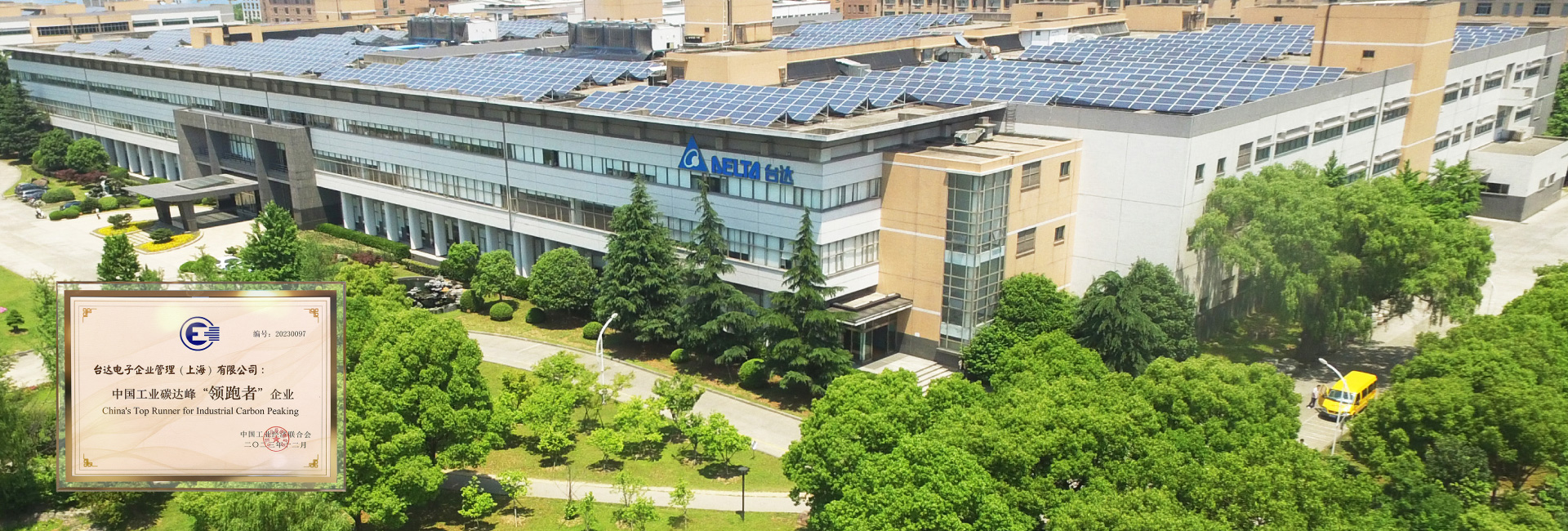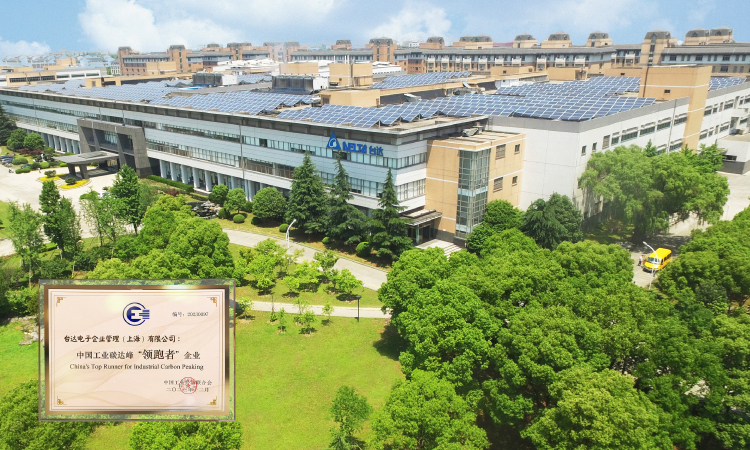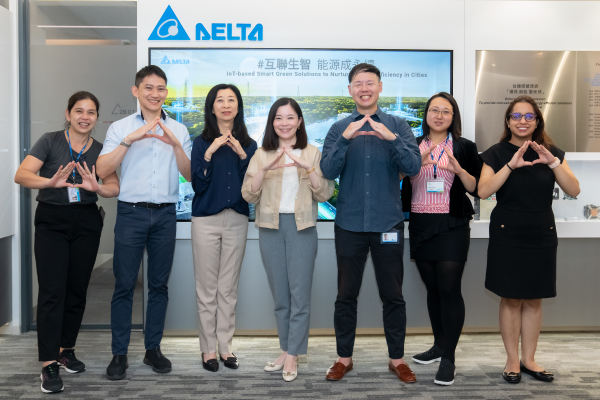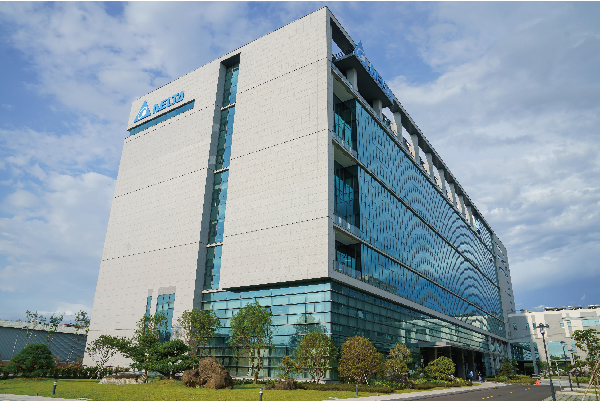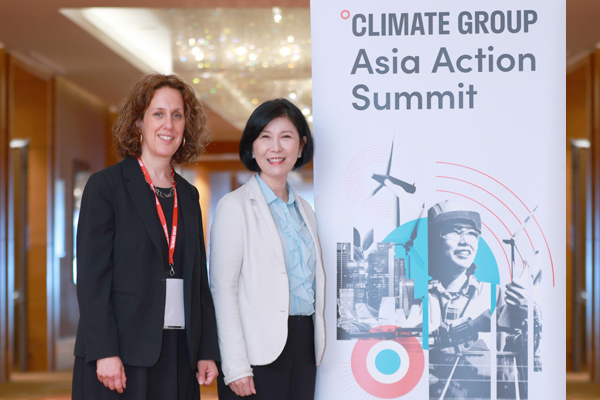Delta, having successfully implemented the Science-Based Targets (SBT) for carbon reduction in 2017 and achieving the target four years ahead of schedule in 2021, is now committed to achieving 100% renewable electricity usage and carbon neutrality by 2030. This commitment demonstrates Delta’s dedication to the SBT Net Zero goal through tangible actions.
Delta has been acknowledged as a prominent enterprise in China’s Industrial Carbon Peaking Achievement, playing a pivotal role in driving the green and low-carbon transformation of the industry.
To promote the implementation of the “Dual Carbon” goals in the industrial sector, the China Federation of Industrial Economics will be hosting the China’s Top Runner for Industrial Carbon Peaking Selection starting in 2022. This selection aims to identify exemplary enterprises that are at the forefront of innovation and possess advanced technologies with promotional value. It will provide practical references and implementation paths to help promote the transformation, upgrade, and high-quality development of industries. Delta actively participated in the 2023 evaluation, assessing its long-term efforts and achievements in local energy conservation and carbon reduction against the highest standards.
Delta has emerged as a leader among over 200 companies and has been recognized as the China’s Top Runner for Industrial Carbon Peaking . The CEO of Delta, Ping Cheng, has been invited to deliver a keynote speech at the Second China Industrial Carbon Peaking Forum in January 2024. The speech, titled “Promoting Green High-Quality Development through Energy-Saving Technology,” will highlight Delta’s experiences and achievements in digitalization, intelligence, and low-carbon development.
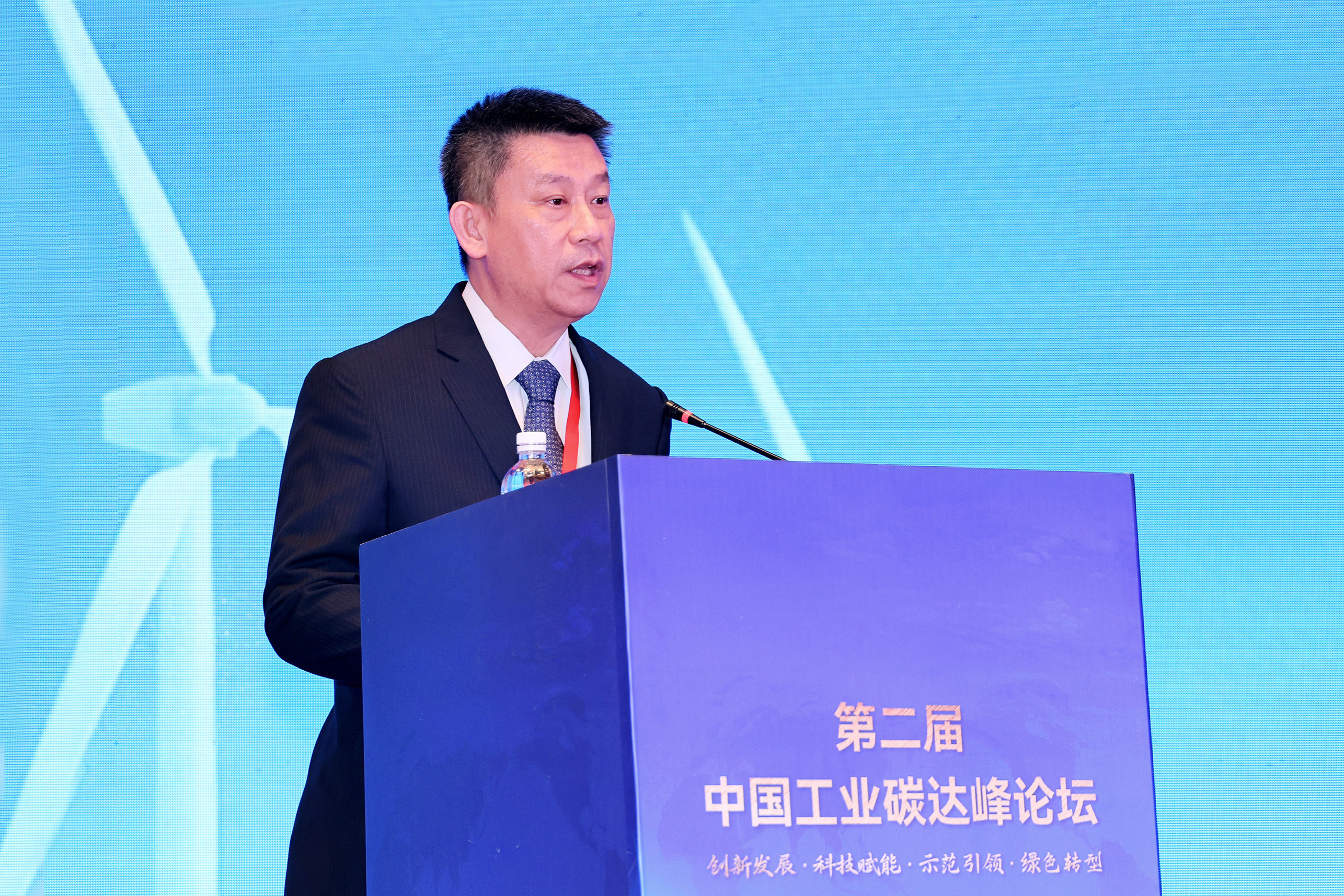
Delta’s CEO, Ping Cheng, presented Delta’s experiences and accomplishments in digitalization, intelligence, and low-carbon development at the China Industrial Carbon Peaking Forum.
CEO Ping Cheng announced that Delta has successfully achieved carbon peaking emissions by implementing various practices such as independent energy conservation, self-use of solar energy, and purchasing green electricity or certificates since 2017. Additionally, Delta has implemented an internal carbon pricing system. Beginning in 2018, our carbon emissions have consistently decreased, while revenue growth has remained decoupled from carbon emissions. Delta has successfully achieved its SBT goal in 2021, four years ahead of schedule, achieving a remarkable 71% reduction in carbon intensity compared to 2014. It has surpassed our original target of a 56.6% reduction in carbon intensity by 2025. In 2022, carbon emissions from Scope 1 and 2 have decreased by 13.5% compared to 2021. The proportion of renewable electricity usage has reached 63% in our global operations, while it has surpassed 90% in our mainland China locations.
The “Top Runner” enterprises selected for this national-level leadership award prioritize strategic foresight. They optimize energy structures, improve energy and water efficiency, invest in new energy sources, and develop excellent green and low-carbon technologies and products. These enterprises provide low-carbon solutions that drive the industry’s transformation towards green and low-carbon practices. By reducing carbon emissions, they also achieve increased benefits, showcasing the positive progress of China’s industrial sector in green and low-carbon transformation.
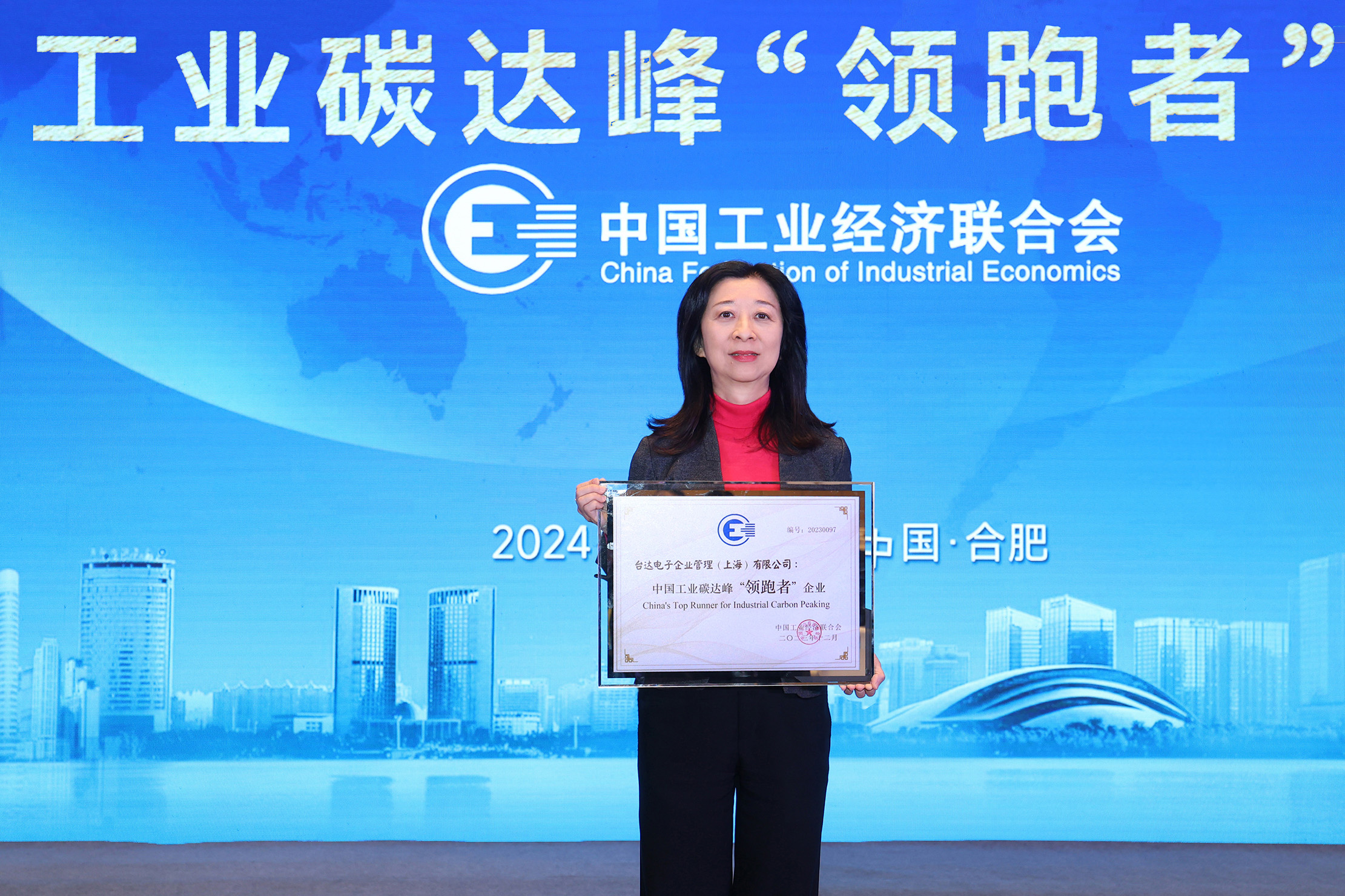
May Wu , Chair of ESG Committee, Delta (China), has been awarded the China’s Top Runner for Industrial Carbon Peaking on behalf of Delta.
Promoting Long-term Proactive Carbon Reduction to Establish a Five-Star Zero Carbon Factory
Delta has been implementing energy-saving programs in its production plants since 2009 and successfully achieved a 50% reduction in electricity intensity (EI) in 2014 within five years. From 2011 to 2022, the Delta has implemented a total of 2,826 energy saving projects, covering various aspects including air conditioning, lighting, injection molding machines, process improvement, and energy management. In 2022, Delta implemented a total of 179 energy saving projects in China, leading to a 36% reduction in overall carbon intensity compared to 2021.
In September 2023, Delta Wujiang Plant 5 in Jiangsu achieved 100% application of renewable electricity using its self-owned energy and carbon management platform, along with self-built solar energy and the purchase of green electricity. The plant also achieved 100% carbon offsetting, earning the recognition as a Five-Star Zero Carbon Factory. It is the first Zero Carbon factory in the electronic manufacturing industry in Jiangsu Province and a successful practice in Delta’s journey towards net-zero goals.
Actively Participating in Green Electricity Trading to Achieve the RE100 Goal
To achieve Delta’s RE100 and carbon neutrality goals, Delta consistently expand our solar power generation systems in mainland China and improve the utilization of renewable electricity through practices such as proactive energy conservation, the purchase of renewable energy certificates, and the use of green electricity products. Delta has also addressed challenges such as inconsistent green energy policies among provinces and delays in the issuance of green electricity certificates. They have signed supplementary agreements with power companies and actively coordinated with the exchange to drive improvement.
In 2022, the proportion of renewable electricity at Delta’s mainland China locations exceeded 90%. Among them, the Wujiang, Dongguan, and Wuhu plants collectively obtained 81.33 million kilowatt-hours renewable electricity which were bundled GECs. Following the opening of local green electricity trading in 2023, the Chenzhou plant also successfully procured a significant amount of green electricity.
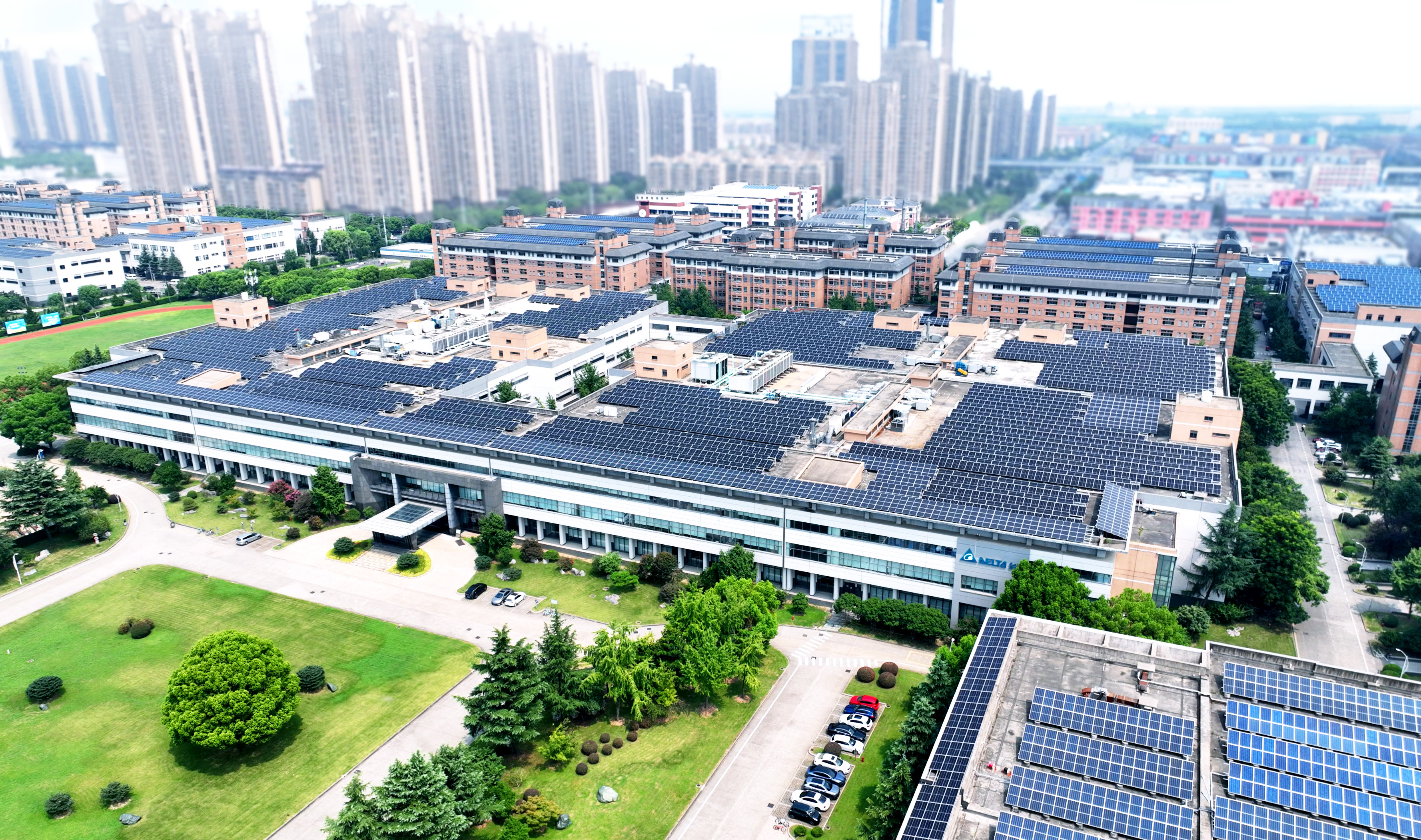
Wujiang Plant 5 has been awarded the prestigious title of “Five-Star Zero Carbon Factory” for its exceptional energy-saving performance. This achievement marks it as the first zero carbon factory in the electronic manufacturing industry in Jiangsu Province.
Promoting low-carbon transformation through effective stakeholder communications
For many years, Delta has been actively engaged in local efforts, compiling and publishing the Chinese version of the ESG Report for nine consecutive years. The Report focuses on stakeholder communications, disclosure of accountability actions and results throughout China. For three consecutive years, the Report has received the highest rating of “Five Stars Excellent” from the China Enterprise Social Responsibility Report Rating Expert Committee. Furthermore, Delta has not only created an official ESG website, but also developed various channels for sustainable development, including WeChat official accounts, video channels, and an internal system called “ESG Highlights.” These channels allow Delta to engage in comprehensive and real-time communications with stakeholders from all perspectives. As of 2023, Delta’s ESG WeChat account has surpassed 18,000 followers, with a total of 264,000 video views.
Delta will continue to implement its sustainable development strategy, considering regional ESG development trends. The company will prioritize the concerns of local stakeholders and further enhance local ESG practices. Additionally, Delta will collaborate with value chain partners to drive low-carbon transformation and contribute to the creation of a zero-carbon sustainable future.
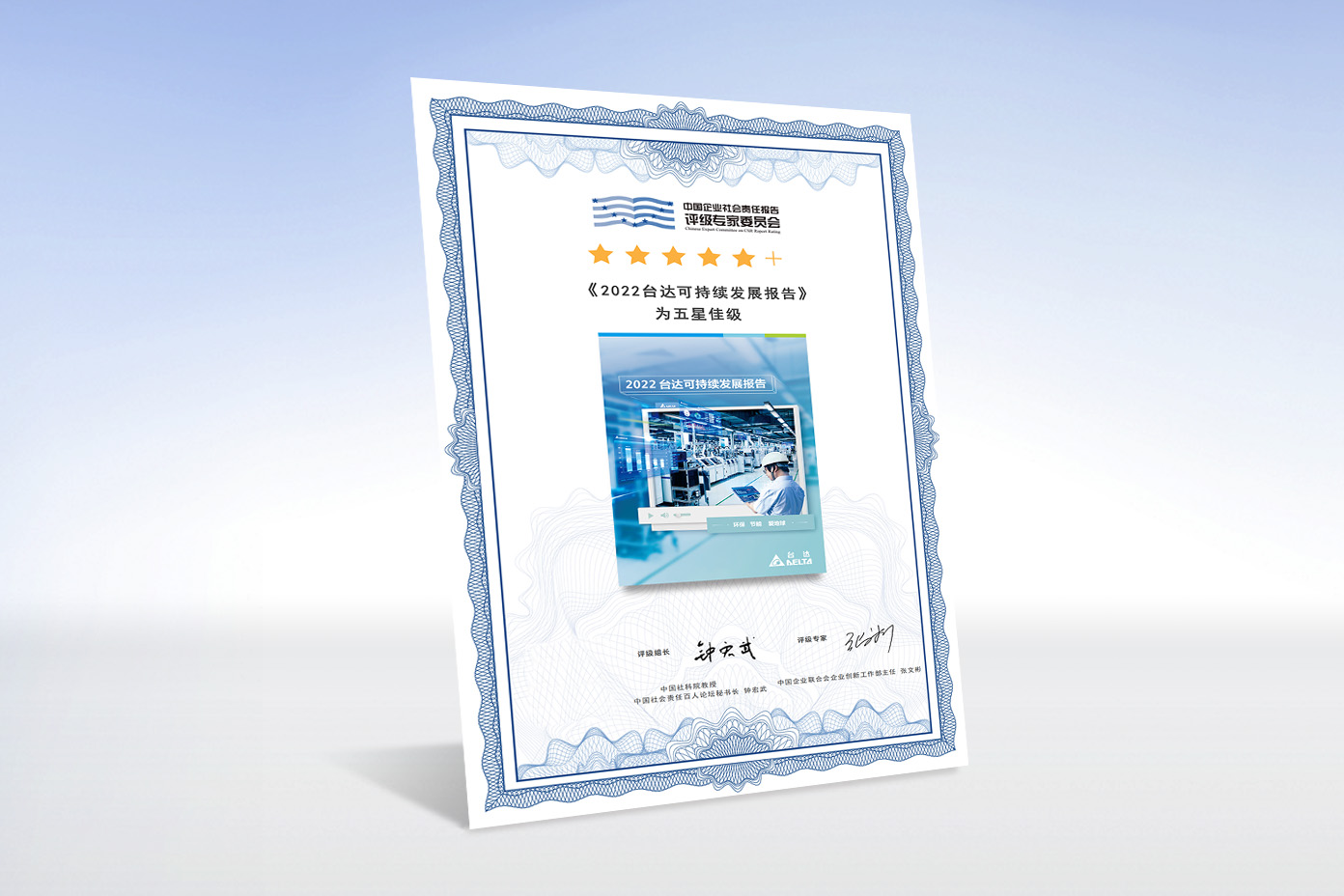
Delta releases a Chinese version of the ESG Report and has received the highest rating of “Five-Star Excellent” for three consecutive years from the China Enterprise Social Responsibility Report Rating Expert Committee.
Note1 The term “carbon peak” refers to the point in time when carbon dioxide emissions reach their highest historical level and then begin to decline after a period of stability. This represents a significant turning point in history, as it marks the shift from increasing carbon dioxide emissions to decreasing emissions.
Note2 Carbon neutrality refers to the practice of offsetting one’s own carbon dioxide emissions through activities such as afforestation and energy conservation, in order to achieve net-zero carbon dioxide emissions.





